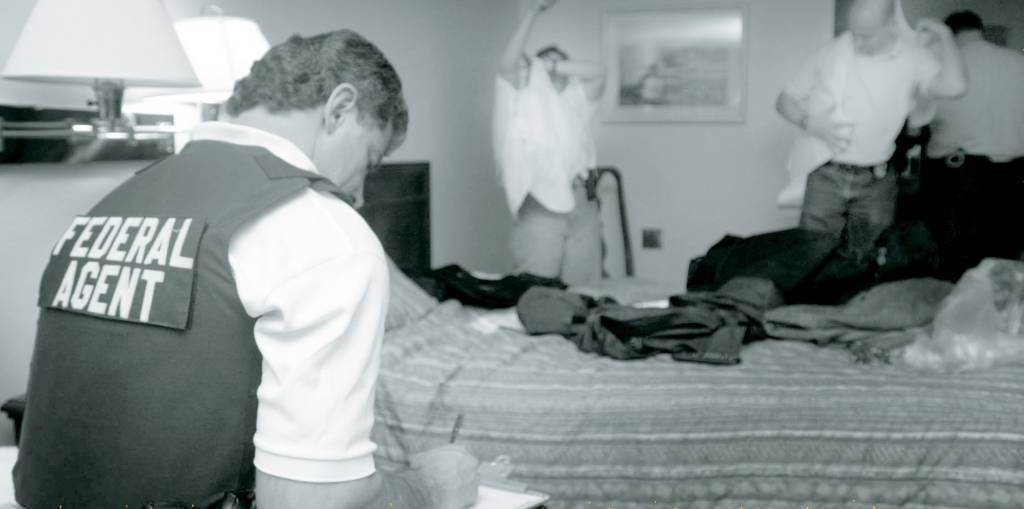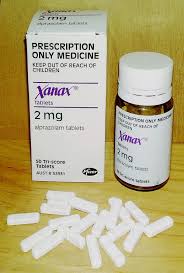Drug Crimes Involving Xanax

Xanax (generic name: alprazolam) is a medication that is used to relieve chemical imbalances in the brain to treat feelings of anxiety. Xanax belongs to a class of drugs known as benzodiazepines. It works by blocking or slowing down the transmission of these chemicals in the brain.
Regulation of Controlled Substances
California law uses the Federal schedule system developed under the Controlled Substances Act of 1970 to classify drugs into different categories. Some drugs, like cocaine, heroin, or methamphetamine, are unlawful to possess under all circumstances. Other drugs, like prescription medications, are legal to possess and sell under certain circumstances.
Under California law, benzodiazepines like Xanax are considered Schedule IV drugs, which means the possession, sale, and possession for sale of Xanax are legal under strict regulations. Violation of these restrictions can result in serious criminal penalties.
Possession of Xanax for Personal Use – HS 11375(b)(2)
Possession of Xanax without a valid prescription is illegal under California law. California Health and Safety Code Section 11375(b)(2) states:
“Every person who possesses any controlled substance specified in subdivision (c), unless upon the prescription of a physician, dentist, podiatrist, or veterinarian, licensed to practice in this state, shall be guilty of an infraction or a misdemeanor.”
Subdivision (c) contains a list of 18 drugs, including Xanax (alprazolam), which are legal to possess by valid prescription from a doctor, dentist, podiatrist, or veterinarian.
Prosecution for Possession of Xanax

In order for you to be convicted of this crime, the prosecution must prove the following elements:
- You did not have a valid prescription;
- You exercised control over the drug (or had the right to do so);
- You knew of the drug’s presence;
- You knew of its nature as a controlled substance; and
- There was a sufficient quantity of the drug to be used as a controlled substance.
Possession can be actual, constructive, or joint. You are in actual possession when the drug is found on your person, such as in your pocket or in your bag.
Constructive possession is when you do not have the drug on your person, but have access to the drug, and the right to exercise control of it. For example, if the drugs were found in your bedroom, the drugs would not be on your person, but in a space to which you had access and control over.
Joint possession is any situation where two or more people share actual or constructive possession of the drug.
Possession for Sale of Xanax – HS 11375(b)(1)
California Health and Safety Code Section 11375(b)(1) states:
“Every person who possesses for sale, or who sells, any substance specified in subdivision (c) shall be punished by imprisonment in the county jail for a period of not more than one year or state prison.”
Under this law, there are two crimes relating to the sale of Xanax. First, it is a crime to actually sell the drug, unless you are in the class of persons or businesses who are exempt from the law, such as pharmacies or hospitals.1 The second crime is possessing Xanax for the purpose of selling the drug. In other words, the possession is not for personal use, but it is for an intended future economic gain.
For possession for sale (also referred to as “possession with intent to sell”), the prosecution must prove all of the following elements:
- You unlawfully possessed a controlled substance;
- You knew of its presence;
- You knew of the substance’s nature or character as a controlled substance;
- When you possessed the controlled substance, you intended to sell it;
- The controlled substance was Xanax; and
- The controlled substance was in a usable amount.
In order to prove intent to sell beyond a reasonable doubt, the prosecution will use any of the following as evidence:
- The amount of Xanax you possessed;
- How the drugs were packaged;
- The amount of money found on you or near the drugs;
- The presence of multiple (pre-paid) cell phones; or
- Frequent visitors to your home or business.
Investigating the Crime: Police Techniques

As with most drug-related crimes, investigations into Xanax drug crimes often involve undercover police work. It is much easier for a prosecutor to make the case if you are caught in the act of selling the drug.
Usually, a case involving Xanax will involve one or more of the following tactics:
- Informants, either as a confidential informant (CI) to the police in exchange for money or for lenient treatment for his or her own crimes;
- Surveillance, such as a stakeout of a suspect’s home or an area known for drug dealing;
- Undercover officers posing as buyers or sellers for “buy-and-bust” arrests; or
- Monitoring the Internet to track an online “pharmacy” or to set up an undercover sting operation.
Punishments for Violation of Health and Safety Code Section 11375
Under California Health and Safety Code Section 11375(b)(1), the illegal possession for sale of Xanax is a misdemeanor crime. If convicted, you face up to 364 days in county jail.
Under California Health and Safety Code Section 11375(b)(2), possession of Xanax is a misdemeanor. The length of your sentence is determined by multiple factors, including the quantity of Xanax possessed; your prior history of substance abuse, arrests, criminal history; and whether you are a minor. Depending on those factors, you may be sentenced up to a maximum of 364 days in county jail. However, you may be eligible for alternative sentencing programs.
Alternative Sentencing for Personal Use Under Health and Safety Code Section 11375(b)(1)
In cases involving personal use, California often allows first-time drug offenders, and individuals with insignificant criminal history to avoid jail or prison by entering into a drug treatment program. California’s deferred entry of judgment (“DEJ”) program allows you to be “diverted” out of the criminal court system and into a drug rehabilitation program if you are eligible. Under Proposition 36, a private outpatient or residential treatment program may be allowed with the Court’s approval. Eligibility for probation with or without a treatment program may also be an option for you. However, probation may include some time in county, city or private jail. The court has the ability to sentence you to time in jail if you fail to comply with the program.
Related Crimes Involving Xanax

Violations of Health and Safety Code section 11375 are often accompanied by charges for other crimes stemming from the incident. Here are a few of the possible charges you might face in addition to selling, possessing for sale, or possessing Xanax for personal use:
- Being Under the Influence of a Controlled Substance Without a Valid Prescription (Health and Safety Code section 11550)
- Possession of Drug Paraphernalia (Health and Safety Code section 11364)
- Driving Under the Influence of Drugs (Vehicle Code section 23152(a))
- Sale of Synthetic Drugs (Health and Safety Code section 11375.5)
Defenses to Drug Crimes Involving Xanax
A skilled drug crimes attorney can devise a strong defense strategy to help you get the best results possible in your case. These defenses include:
- Negating the Elements
As with any criminal case, the prosecution must prove all of the elements of the charge. A skilled defense attorney can raise any of the following defenses:
- No control. You did not exercise control over the drug.
- No knowledge. You did not know the drug was in your possession and/or did not know that the drug was Xanax.
- Insufficient amount. There was an insufficient amount of the drug found in your possession.
- Police Misconduct
Many criminal prosecutions are overturned by police violations of the defendant’s rights under the Constitution. For example, if the police search your home without a warrant, the court could rule that the evidence obtained is inadmissible because of an illegal search and seizure. In other cases, the tactics the police use could be inappropriate, such as falsifying reports as to the facts that gave probable cause for your arrest, or even going so far as to plant drugs on your person or in your car.
If there is suspicion of police misconduct, your attorney can ask the court for the right to review the officer’s record to examine it for past misconduct. If a pattern is discovered, it is possible that the officer’s misconduct can be used to dismiss or reduce charges against you.
- Entrapment
Entrapment is a defense that essentially claims that you were set up by the police to commit a crime you would not have committed without police involvement. Entrapment is an affirmative defense, which means that the burden of proof is on you to show that the crime was caused by the officer’s actions and that you lacked criminal intent to commit the crime before the police became involved.
- Valid Prescription
If you possessed a legal Xanax prescription, you could avoid a conviction. However, this defense does not apply if:
- You had a fraudulent prescription for the drug (i.e. violation of California’s doctor shopping laws.)
- You are found in possession of more drugs than the prescribed amount; or
- You possessed Xanax that has been legally prescribed for someone else and you were not authorized to use it.
Frequently Asked Questions About Xanax-Related Crimes

- What are some other names for Xanax?
Like other brand-name drugs, Xanax has a generic name (alprazolam), but also has a few nicknames. Some of the nicknames are based on the class of the drug, or on the color of the pills:
- Xans
- Bennies
- Benzos
- Bars
- Chill Pills
- School Buses
- White Boys/Girls
- Can I be charged with possession of Xanax even if I have a valid prescription?
In some cases, yes. A valid prescription is only part of a defense, and it is not a total defense. For example, if you have a prescription for 10 days of personal use, but you have enough to last 50 days, the amount you possess exceeds your valid prescription, and you can be charged for illegal possession of Xanax.
- I wasn’t carrying the Xanax on my body, but the police found the drugs in my car. Is that still possession?
Yes, it can be. There are three kinds of possession in law: actual possession, constructive possession, and joint possession. Actual possession is when you have Xanax pills on your person. This includes if the pills were found in a backpack or a purse that you are carrying.
If the pills are found in an area over which you exercise control, such as your car or your bedroom, you are said to be in constructive possession of the illegal drugs. In the legal world, “constructive” means that the law assigns possession to a person. In other words, you do not actually need to be holding or touching the drug to be found in possession of it. Therefore if the substance is found in your car, bedroom or any other area over which you have control, you can be prosecuted for possession.
- What if I didn’t know the drugs were there?
If you did not know that the Xanax was present, the prosecution will not be able to make the case under Health and Safety Code section 11375. The prosecution has the burden of proving beyond a reasonable doubt that you had knowledge of the drug’s presence. If the prosecution cannot do so, you should not be convicted of this offense. However, you will need a skilled attorney to raise this offense.
Wallin & Klarich Can Help You Fight Charges Related to Xanax

If you have been accused of selling, possessing for sale, or possessing Xanax, you may have a serious legal battle ahead of you. That is why you should contact the experienced drug crimes defense attorneys at Wallin & Klarich as soon as possible.
At Wallin & Klarich, our attorneys have the skills and knowledge acquired over 40 years of successfully defending clients accused of drug crimes. We are committed to providing you with the personal attention you deserve and we will help you in your attempt to overcome this difficult situation.
With offices in Los Angeles, Sherman Oaks, Torrance, Tustin, San Diego, Riverside, San Bernardino, Ventura, West Covina and Victorville, our attorneys at Wallin & Klarich are available 24 hours a day, 7 days a week to provide you with the very best legal representation. We will employ every available strategy to help you get the best result possible in your case.
Call us today at (877) 4-NO-JAIL or (877) 466-5245 for a free, no obligation telephone consultation. We will get through this together.
1.Exempt persons and entities can be found in Article 7 (commencing with Section 4110) of Chapter 9 of Division 2 of the California Business and Professions Code.↩

